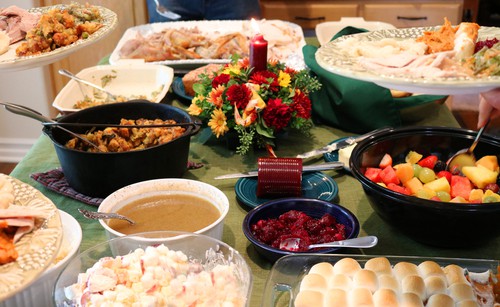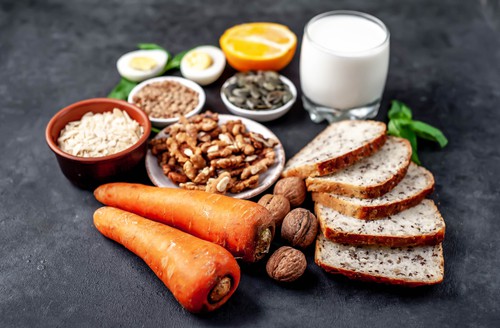
Dusting and Vacuuming Techniques for a Dust-Free Home
October 4, 2023
Hygiene and Personal Care: Maintaining Senior Well-Being
October 14, 2023Nutrition and Meal Planning in Part-Time Elderly Care

Nutrition and Meal Planning in Part-Time Elderly Care
Nutrition and Meal Planning in Part-Time Elderly Care. The golden years of life should be characterized by comfort, happiness, and good health for our elderly loved ones.
One of the key pillars supporting this quality of life is nutrition. In the realm of part-time elderly care, nutrition, and meal planning are vital components that play a significant role in ensuring the well-being of seniors.
In this comprehensive guide, we will explore the importance of nutrition in elderly care, understand the nutritional needs of seniors, delve into meal planning, and provide insights for part-time caregivers on creating balanced and nourishing meal plans.
Table of Contents
ToggleUnderstanding the Nutritional Needs of Seniors
As individuals age, their bodies undergo changes that can impact their nutritional needs. Factors such as reduced metabolism, changes in muscle mass, and altered taste and appetite can affect their ability to maintain a healthy diet.
Common Nutritional Challenges Among the Elderly
Elderly individuals often face nutritional challenges that include:
- Malnutrition: Insufficient intake of essential nutrients.
- Dehydration: Reduced thirst sensation and water intake.
- Appetite Changes: Altered taste perceptions and decreased appetite.
- Chronic Health Conditions: Conditions like diabetes, heart disease, and osteoporosis may require specific dietary considerations.
The Role of Proper Nutrition in Elderly Health
Proper nutrition is a cornerstone of good health for seniors. It can:
- Support Immune Function: A well-balanced diet helps maintain a strong immune system.
- Manage Chronic Conditions: Nutrition is key in managing and preventing chronic health conditions.
- Promote Mental Well-being: Nutrient-rich foods can support cognitive function and mental health.
Benefits of Part-Time Elderly Care

- Part-time elderly care allows seniors to age in place, surrounded by familiar comforts and loved ones. Caregivers provide essential support while enabling independence.
- Part-time caregivers offer companionship, assistance with daily activities, and specialized care. They play a crucial role in enhancing seniors’ overall quality of life.
- Part-time caregivers create customized care plans that address the unique nutritional needs of each senior.
Assessing Nutritional Needs
The Initial Nutritional Assessment
A comprehensive nutritional assessment is the starting point for creating a tailored meal plan. This assessment considers factors such as current diet, medical history, allergies, and dietary preferences.
Identifying Dietary Restrictions and Preferences
It’s essential to identify any dietary restrictions, such as food allergies or religious dietary guidelines, and dietary preferences to ensure the meal plan aligns with the senior’s needs and preferences.
Understanding Medical Conditions Impacting Nutrition
Medical conditions like diabetes or food allergies require special attention when planning meals. Caregivers need to work closely with healthcare professionals to create safe and nourishing diets.
Creating a Balanced Meal Plan

A balanced meal plan should include a variety of nutrients essential for senior health. This includes:
- Proteins: Important for maintaining muscle mass.
- Fruits and Vegetables: Rich sources of vitamins and minerals.
- Whole Grains: Provide energy and fiber.
- Dairy or Alternatives: Essential for calcium intake.
- Healthy Fats: Sources like avocados and nuts promote heart health.
Incorporating a Variety of Food Groups
Diversity in food choices ensures seniors receive a wide range of nutrients. A colorful plate with a mix of vegetables, lean proteins, and whole grains indicates a balanced meal.
Meal Frequency and Portion Sizes
Smaller, more frequent meals can be easier for seniors to manage. Caregivers should consider portion sizes and meal timing to suit individual needs.
Special Dietary Considerations

Managing Dietary Restrictions and Allergies
Caregivers must be diligent in avoiding allergens and adhering to dietary restrictions. Cross-contamination and hidden allergens should be prevented.
Diabetic-Friendly Meal Planning
For seniors with diabetes, meal planning should focus on carbohydrate control, monitoring blood sugar levels, and understanding the glycemic index of foods.
Low-Sodium and Heart-Healthy Diets
Seniors with heart conditions or hypertension may require low-sodium diets. This involves limiting salt intake and choosing heart-healthy foods.
Cooking and Meal Preparation
Caregivers should follow safe cooking practices to prevent foodborne illnesses. Additionally, they should aim to preserve the nutrient content of foods.
While convenience foods may be practical, homemade meals allow for better control over ingredients and nutritional quality. A balance between both approaches can be beneficial.
Part-time caregivers often take on the responsibility of meal preparation, ensuring that seniors receive nutritious and delicious meals.
Collaborating with Healthcare Professionals
Consulting Registered Dietitians and Nutritionists
Registered dietitians and nutritionists can provide expert guidance on meal planning for seniors with specific dietary needs.
Medication Management and Nutritional Interactions
Some medications can interact with nutrients or dietary components. Caregivers should coordinate medication schedules and dietary intake to minimize adverse interactions.
Coordinating Care Plans for Optimal Nutrition
Effective communication between caregivers, healthcare professionals, and family members ensures a holistic approach to senior nutrition.
Frequently Asked Questions (FAQs)

How can I ensure my elderly loved one is eating enough?
Encourage regular meals, monitor portion sizes, and consider smaller, more frequent meals if appetite is a concern.
What foods should be avoided in an elderly diet?
Foods high in added sugars, excessive salt, and processed foods with unhealthy fats should be limited.
How do I address appetite changes in seniors?
Try offering smaller, nutrient-dense meals and snacks. Encourage social mealtime experiences to stimulate appetite.
Are there nutritional supplements recommended for the elderly?
Supplements should be recommended by a healthcare professional based on specific nutritional needs.
What are some easy-to-prepare meals for seniors?
Simple meals like vegetable stir-fries, soups, and baked chicken with vegetables are nutritious and easy to prepare.
Can dietary changes improve specific health conditions in the elderly?
Yes, dietary changes can help manage conditions like diabetes, heart disease, and hypertension.
Should I consult a healthcare professional for dietary guidance?
Consulting a registered dietitian or nutritionist can provide tailored dietary guidance for seniors with specific needs.
What are the signs of malnutrition in the elderly?
Signs of malnutrition include unintended weight loss, fatigue, weakness, and impaired wound healing.
Part-Time Elderly Care and Mealtime Support
Caregivers provide physical and emotional support during meal times, creating a positive dining experience. Social interactions during meals can enhance seniors’ appetite and overall well-being.
Caregivers must approach dietary restrictions and preferences with sensitivity, ensuring that seniors feel heard and respected.
Regular nutritional assessments help caregivers track seniors’ progress and make necessary adjustments to meal plans.
As seniors’ nutritional needs evolve, caregivers should adapt meal plans to address changing requirements.
Caregivers play an ongoing role in supporting seniors’ nutritional well-being, making sure they receive the nourishment necessary for a healthy and fulfilling life.
Nutrition and Meal Planning in Part-Time Elderly Care – Conclusion

In the journey of part-time elderly care, nutrition emerges as a fundamental element that influences the overall health and well-being of seniors.
The right balance of nutrients can improve immune function, manage chronic conditions, and enhance mental well-being.
To all part-time caregivers, your role in ensuring the nutritional well-being of seniors is pivotal. Your dedication to crafting balanced meal plans, considering dietary restrictions, and providing mealtime support can significantly impact the lives of those you care for.
In conclusion, the synergy of proper nutrition and part-time caregiving can enhance the lives of seniors, allowing them to age gracefully and comfortably.
Nourishing their bodies is a gesture of love and respect, ensuring that their golden years are truly golden.
Are you seeking professional and reliable elderly care services in Singapore? Contact us today!



